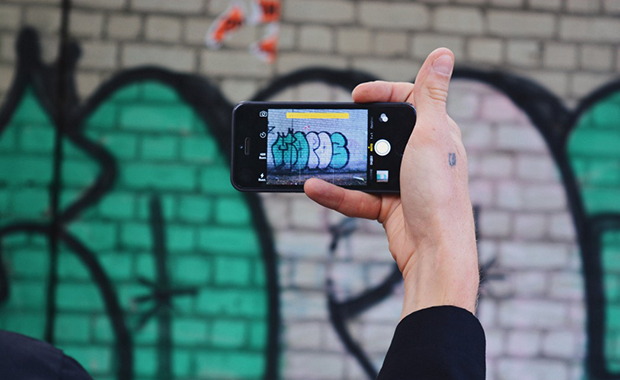Life
3 Common Ways We Are All Using Social Media the Wrong Way

Social Media has been ingrained so much in our daily lives that our attention is fixated on it immediately after waking up, and right before falling asleep. Nonetheless, who can blame us, right? Times change and the state of our external environment should never be directly our fault. However, the things we can’t change also come with things we can change, such as our own choices and how to respond to what surrounds us.
You probably found this article through social media, and I want you to think about your intentions during that moment. Were you genuinely looking for information to further your knowledge? Or were you using it for other purposes that could sabotage your path to success?
Here are three ways you might be using social media the wrong way:
1. Using it to kill time
Time is the most valuable asset we have. You can always make more money, but you can never make more time. Rich or poor, tall or short, we all have the same twenty-four hours in a day. Since life is short, how are you using those short hours that you have? Assuming you sleep six hours per night, that leaves you with only eighteen hours left.
In those eighteen hours, how many are spent looking at funny memes or catching up on that show everyone else is raving about? You might think, “Oh, I just got done with work and have six hours left until it’s time to go to bed. I’ll go on Facebook until I fall asleep.”
You can accomplish multiple things in six hours. For example, writing a quality article takes me two hours. In six hours, assuming I take minimal breaks, it means I could write three articles. You can also use those six hours to gain more knowledge by listening to podcasts, reading books, or taking part-time classes which will get you closer to your goal.
It’s not wrong to entertain ourselves and occasionally scroll through social media, but if it becomes a habit to waste time just because we can, it will take you much longer to succeed. To do it right, only allot a certain amount of time for it per day, then commit to it.
“Time = life; therefore, waste your time and waste your life, or master your time and master your life.” – Alan Lakein
2. Allowing it to replace in-person human interaction
We’re busy creatures and do not have all the time in the world to meet all our friends in person. But what happens when we do have the time to spend with someone, and they’re actually in a nearby part of town?
For most people, their birthdays are displayed on their profiles, and while it feels good to have multiple notifications saying, “Happy Birthday!” on your timeline, nothing still beats actual one-on-one quality time with someone.
Relationships are one of the most important things in life, and success isn’t only about acquiring wealth or gaining power. Success is also about creating, nurturing and maintaining meaningful relationships bringing great benefits to everybody involved.
3. Allowing it to define your happiness
There you go again, stalking your ex’s Instagram pictures with their new partner. Look at them all happy and doing all the fun things you never did together. They look so in love, which probably means they are, right? Not necessarily.
I see it all the time. People posting like they’re having the best times of their lives and then all of a sudden I just hear that they’ve committed suicide or I find out that they weren’t actually happy.
We tend to filter out the bad parts of our lives on social media and let the world know only about the glamorous parts. I’m also guilty of this, since I like to post about the new clients I’ve landed for my business, the new articles that I’ve been featured in, and the new digital products I’ve finished.
Of course I wouldn’t want them to know about the hundreds of rejected business proposals, rejected articles and digital products which never sold a single transaction. Because why would anyone in their right mind do that? We always want to put our best selves online.
But thanks to enough experience, I’ve learned a life lesson that might take longer for others to know: Social media shouldn’t define your happiness. No matter how “empty” your feed or timeline might look like, it shouldn’t stop you from living life the way you want. Yes, we should consider the impact and visuals of our posts, but our self-esteem shouldn’t come from external validation.
“To be happy, we must not be too concerned with others.” – Albert Camus
Social media is not real life. The sooner we realize that, the less we’ll compare ourselves with others and truly appreciate where we are in our journey.
How are you making sure you use social media in a way not harmful to your health? Comment below!
Image courtesy of Twenty20.com
Did You Know
How Skilled Migrants Are Building Successful Careers After Moving Countries
Behind every successful skilled migrant career is a mix of resilience, strategy, and navigating systems built for locals.

Moving to a new country for work is exciting, but it can also be unnerving. Skilled migrants leave behind familiar systems, networks, and support to pursue better job opportunities and a better future for their families. (more…)
Life
10 Research-Backed Steps to Create Real Change This New Year
This New Year could finally be the one where you break old patterns and create real, lasting change.

Every New Year, we make plans and set goals, but often repeat old patterns. (more…)
Life
9 Harsh Truths Every Young Man Must Face to Succeed in the Modern World
Before chasing success, every young man needs to face these 9 brutal realities shaping masculinity in the modern world.

Many young men today quietly battle depression, loneliness, and a sense of confusion about who they’re meant to be.
Some blame the lack of deep friendships or romantic relationships. Others feel lost in a digital world that often labels traditional masculinity as “toxic.”
But the truth is this: becoming a man in the modern age takes more than just surviving. It takes resilience, direction, and a willingness to grow even when no one’s watching.
Success doesn’t arrive by accident or luck. It’s built on discipline, sacrifice, and consistency.
Here are 9 harsh truths every young man should know if he wants to thrive, not just survive, in the digital age.
1. Never Use Your Illness as an Excuse
As Dr. Jordan B. Peterson often says, successful people don’t complain; they act.
Your illness, hardship, or struggle shouldn’t define your limits; it should define your motivation. Rest when you must, but always get back up and keep building your dreams. Motivation doesn’t appear magically. It comes after you take action.
Here are five key lessons I’ve learned from Dr. Peterson:
-
Learn to write clearly; clarity of thought makes you dangerous.
-
Read quality literature in your free time.
-
Nurture a strong relationship with your family.
-
Share your ideas publicly; your voice matters.
-
Become a “monster”, powerful, but disciplined enough to control it.
The best leaders and thinkers are grounded. They welcome criticism, adapt quickly, and keep moving forward no matter what.
2. You Can’t Please Everyone And That’s Okay
You don’t need a crowd of people to feel fulfilled. You need a few friends who genuinely accept you for who you are.
If your circle doesn’t bring out your best, it’s okay to walk away. Solitude can be a powerful teacher. It gives you space to understand what you truly want from life. Remember, successful men aren’t people-pleasers; they’re purpose-driven.
3. You Can Control the Process, Not the Outcome
Especially in creative work, writing, business, or content creation, you control effort, not results.
You might publish two articles a day, but you can’t dictate which one will go viral. Focus on mastery, not metrics. Many great writers toiled for years in obscurity before anyone noticed them. Rejection, criticism, and indifference are all part of the path.
The best creators focus on storytelling, not applause.
4. Rejection Is Never Personal
Rejection doesn’t mean you’re unworthy. It simply means your offer, idea, or timing didn’t align.
Every successful person has faced rejection repeatedly. What separates them is persistence and perspective. They see rejection as feedback, not failure. The faster you learn that truth, the faster you’ll grow.
5. Women Value Comfort and Security
Understanding women requires maturity and empathy.
Through books, lectures, and personal growth, I’ve learned that most women desire a man who is grounded, intelligent, confident, emotionally stable, and consistent. Some want humor, others intellect, but nearly all want to feel safe and supported.
Instead of chasing attention, work on self-improvement. Build competence and confidence, and the rest will follow naturally.
6. There’s No Such Thing as Failure, Only Lessons
A powerful lesson from Neuro-Linguistic Programming: failure only exists when you stop trying.
Every mistake brings data. Every setback builds wisdom. The most successful men aren’t fearless. They’ve simply learned to act despite fear.
Be proud of your scars. They’re proof you were brave enough to try.
7. Public Speaking Is an Art Form
Public speaking is one of the most valuable and underrated skills a man can master.
It’s not about perfection; it’s about connection. The best speakers tell stories, inspire confidence, and make people feel seen. They research deeply, speak honestly, and practice relentlessly.
If you can speak well, you can lead, sell, teach, and inspire. Start small, practice at work, in class, or even in front of a mirror, and watch your confidence skyrocket.
8. Teaching Is Leadership in Disguise
Great teachers are not just knowledgeable. They’re brave, compassionate, and disciplined.
Teaching forces you to articulate what you know, and in doing so, you master it at a deeper level. Whether you’re mentoring a peer, leading a team, or sharing insights online, teaching refines your purpose.
Lifelong learners become lifelong leaders.
9. Study Human Nature to Achieve Your Dreams
One of the toughest lessons to accept: most people are self-interested.
That’s not cynicism, it’s human nature. Understanding this helps you navigate relationships, business, and communication more effectively.
Everyone has a darker side, but successful people learn to channel theirs productively into discipline, creativity, and drive.
Psychology isn’t just theory; it’s a toolkit. Learn how people think, act, and decide, and you’ll know how to lead them, influence them, and even understand yourself better.
Final Thoughts
The digital age offers endless opportunities, but only to those who are willing to take responsibility, confront discomfort, and keep improving.
Becoming a man today means embracing the hard truths most avoid.
Because at the end of the day, success isn’t about luck. It’s about who you become when life tests you the most.
Change Your Mindset
The Four Types of Happiness: Which One Are You Living In?
Most people chase success only to find emptiness, this model reveals why true happiness lies somewhere else.

In a world driven by rapid technological growth and constant competition, many people unknowingly trade joy for achievement. (more…)
-

 News3 weeks ago
News3 weeks agoBrandon Willington Builds 7-Figure Business by Ignoring Almost Everything
-

 Health & Fitness4 weeks ago
Health & Fitness4 weeks agoWhat Minimalism Actually Means for Your Wellness Choices
-

 Did You Know3 weeks ago
Did You Know3 weeks agoWhy Most Online Courses Fail and How to Fix Them
-

 Business4 weeks ago
Business4 weeks agoIf Your Business Internet Keeps Letting You Down, Read This
-

 Business2 weeks ago
Business2 weeks agoEntrepreneur’s Guide to Pay Stubs: Why Freelancers and Small Business Owners Need a Smart Generator
-

 Business2 weeks ago
Business2 weeks agoThe Salary Shift Giving UK Employers An Unexpected Edge
-

 Scale Your Business2 weeks ago
Scale Your Business2 weeks ago5 Real Ways to Grow Your User Base Fast
-

 Business2 weeks ago
Business2 weeks agoThe Simple Security Stack Every Online Business Needs




























2 Comments